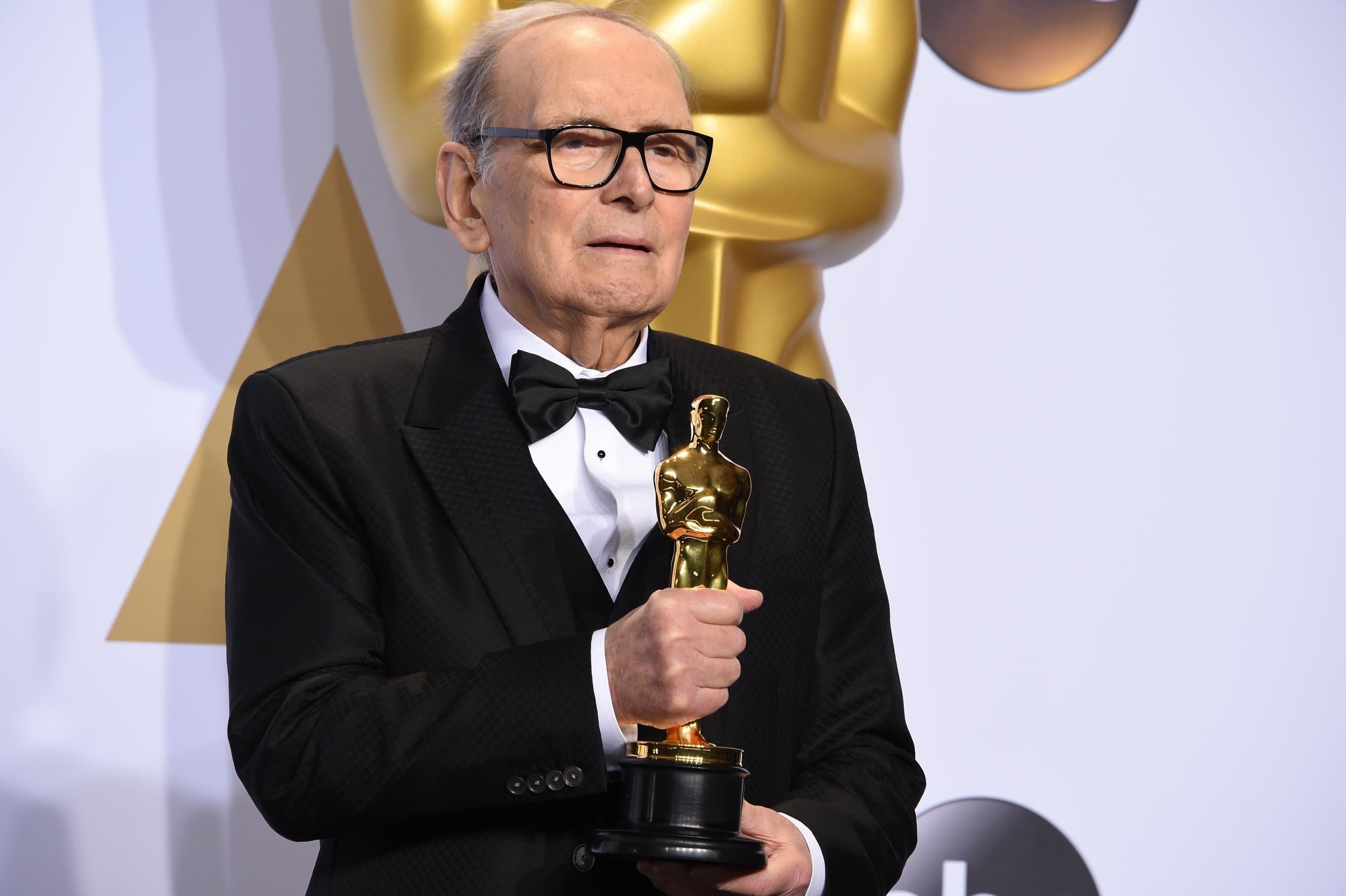Forget Leo, Ennio Morricone finally won an Oscar after 500 movie credits
Italy's legendary composer landed gold on his sixth nomination, for Quentin Tarantino's 'The Hateful Eight'

Your support helps us to tell the story
From reproductive rights to climate change to Big Tech, The Independent is on the ground when the story is developing. Whether it's investigating the financials of Elon Musk's pro-Trump PAC or producing our latest documentary, 'The A Word', which shines a light on the American women fighting for reproductive rights, we know how important it is to parse out the facts from the messaging.
At such a critical moment in US history, we need reporters on the ground. Your donation allows us to keep sending journalists to speak to both sides of the story.
The Independent is trusted by Americans across the entire political spectrum. And unlike many other quality news outlets, we choose not to lock Americans out of our reporting and analysis with paywalls. We believe quality journalism should be available to everyone, paid for by those who can afford it.
Your support makes all the difference.After clocking over 500 movie credits, legendary Italian composer Ennio Morricone finally landed Oscar gold at this year's Academy Awards.
Winning for Quentin Tarantino's The Hateful Eight, he stated; "There isn't a great soundtrack without a great movie that inspires it. This is why I thank Quentin Tarantino for choosing me, as well as the producer Harvey Weinstein and the whole crew."
He also thanked fellow nominees: Carter Burwell for Carol, Jóhann Jóhannsson for Sicario, Thomas Newman for Bridge of Spies, and John Williams for Star Wars: Episode VII - The Force Awakens.
This follows both a Golden Globe and a BAFTA for the same score, which partially utilises unused work from one of his most famous scores, for John Carpenter's 1982 sci-fi The Thing.
Morricone had previously been nominated five times for the Academy Award; for his scores to Days of Heaven (1978), The Mission (1986), The Untouchables (1987), Bugsy (1991), and Malèna (2000). However, the 87-year-old composer had received an honorary Oscar for his lifetime contribution in 2007.
Though several decades too late, perhaps, it's fitting at least to see Morricone win for the genre he's most been associated with; having scored Sergio Leone's iconic western trilogy: A Fistful of Dollars (1964), For a Few Dollars More (1965), and The Good, the Bad and the Ugly (1966).
It's a win which will surely bring Tarantino great pleasure as well, with an original Morricone score fulfilling a real ambition within the director's own filmography. Morricone had previously declined scoring Inglorious Basterds (2009), though later agreeing to provide a single, new piece for Django Unchained (2012).
Join our commenting forum
Join thought-provoking conversations, follow other Independent readers and see their replies
Comments